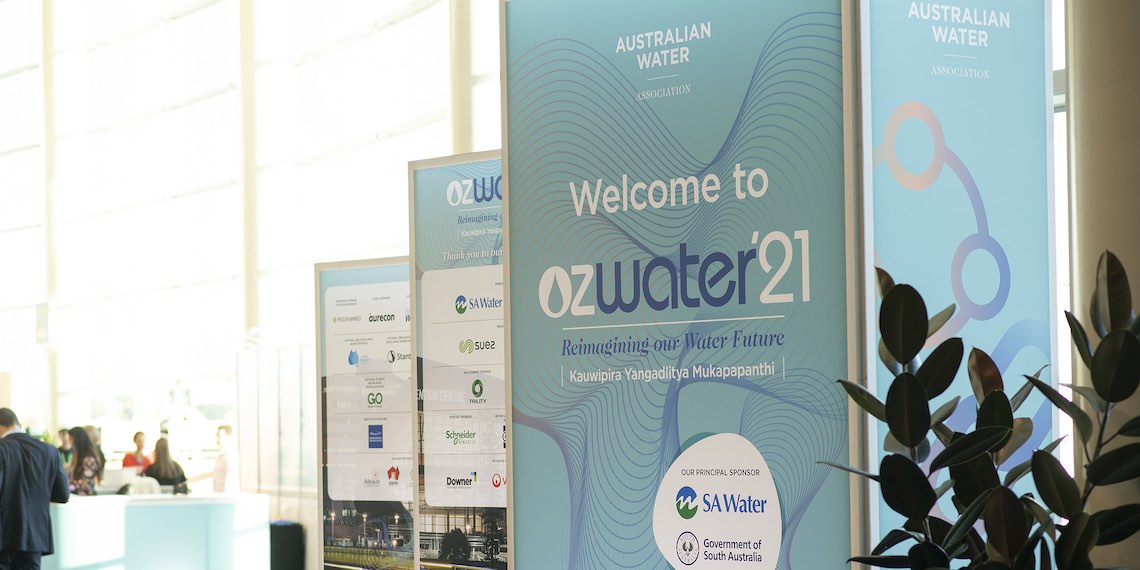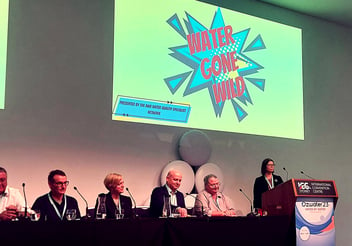Ozwater workshop considers key water quality questions

At Ozwater’21, an AWA Water Quality Specialist Network workshop facilitated discussion around some of the most pressing questions facing water quality specialists around the country.
The workshop, Water Quality Monitoring and Analysis On Tap: Now And Into The Future, encouraged group learning and developed key questions for the sector moving forward. It featured case study presentations on Mount Isa’s algal bloom, managing disinfection by-products, smart data analytics and post-bushfire water quality concerns.
Aurecon’s Sally Williamson said the specialist network aims to facilitate collaboration and knowledge sharing within the industry and the workshop was all about getting everyone together to share ideas and learnings.
“Water quality monitoring and analysis is quite a broad field. Being able to bring all those various specialists together, the workshop offered the opportunity for people to meet their colleagues face to face,” she said.
“It allowed us all to think deeply about the case studies that were presented, and how the learnings might apply to what we all do at work on a day to day basis.
“It was all about knowledge sharing, keeping the network members informed on the latest developments, and providing an opportunity to discuss their own issues in an informal setting.”
Analysing algal blooms
Of particular interest to workshop participants was the algal bloom case study, which took a close look at the management of persistent harmful algal bloom in Mount Isa’s drinking water system.
“It's not an emerging topic, but it's a really interesting topic that a lot of people are becoming more and more affected by, especially with climate change,” Williamson said.
“There was a lot of interest in how it's being handled in Mount Isa, which could be applicable to anywhere, really.”
University of South Australia’s Christopher Chow said algal blooms are a topic that Queensland and South Australian water authorities are very familiar with, and the workshop proved to be a great forum for sharing learnings and methodologies.
“In South Australia and Queensland, we are quite used to having algal blooms as we generally have higher temperatures than other states. But recently, because of climate change, Victoria and New South Wales are also having more algal bloom issues,” he said.
“It’s interesting to see this growing need for knowledge sharing. South Australia and Queensland have built quite a bit of experience on algal bloom management, and the workshop helped to connect people looking for guidance.”
Revisiting water quality concerns in 2022
Other key concerns and future focuses raised by workshop participants included the need for more information sharing around instrument selection, the importance of feed water quality analysis to inform process optimisation and plant operation, and the potential of process automation through advances in control technology and managing big data sets.
Williamson said the Water Quality Specialist Network will be back at Ozwater’22, this time facilitating a debate-style forum set to engage with water quality around water quality myths.
“We’ve decided to take a different approach this year. It’ll be like an old-fashioned school debate about some of the myths around water quality, and hopefully will be very engaging and entertaining,” she said.
Interested in participating in the Ozwater’22 workshops and panels? Take a look at the program and register here.



.jpg?width=352&name=1000063876%20(1).jpg)